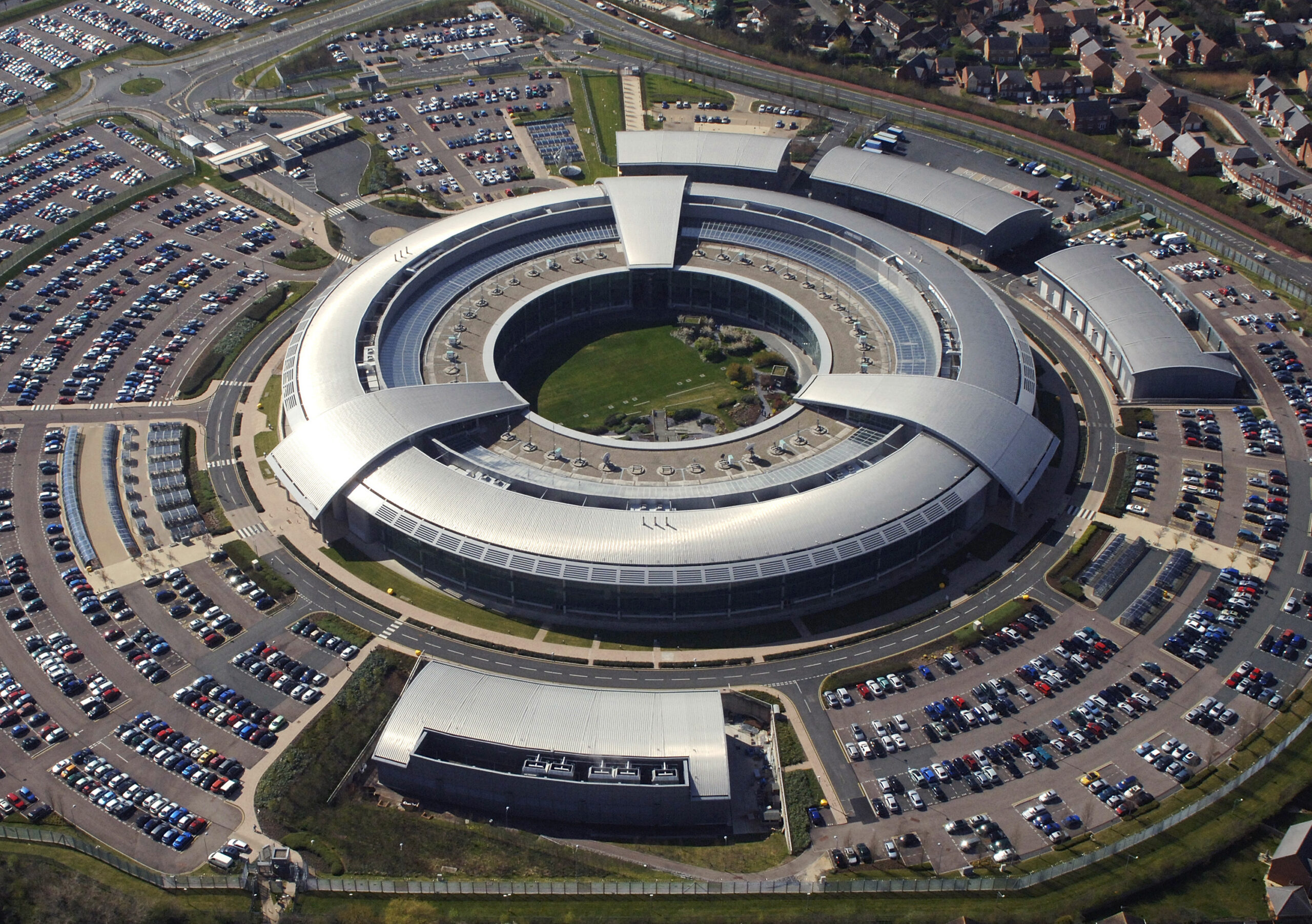The government is being urged to involve local authorities in the development of the UK National Cyber Security Centre to ensure councils are not left behind in the push for increased cyber security.
Local authorities don’t want to be the weak link in the public sector chain – Photo credit: Flickr, Brian Smithson
The National Cyber Security Centre, announced by chancellor George Osborne in November 2015, is set to open in October and will act as a hub of cyber security expertise.
The centre will bring together a number of government organisations with a role in cyber security, and a prospectus published in May saying that the centre would provide support to public and private sector organisations.
Related content
In depth: National cyber security programme
Councils must play part in national cyber security system
GCHQ is currently consulting on the plans, and local government bodies have said they are keen to make sure they are involved from the outset.
“We’ve plenty of experience of central government initiatives imposed on local government that have gone awry, simply because they haven’t involved local government from the outset,” said Martin Ferguson, director of policy and research at Socitm.
David Simmonds, a councillor for the London Borough of Hillingdon and the chairman of the Local Government Association’s improvement and innovation board, agrees.
“We don’t want a repeat of the Public Service Network situation,” he said. “There are valuable lessons to be learnt from that, particularly about how to engage with local government in order to co-design a solution.”
Both Ferguson and Simmonds want to see the UK take a holistic approach to its cyber security strategy that allows local government bodies to be involved in the design process.
They note that an increased emphasis on data-sharing across the whole of the public sector means all parts of the system are interlinked.
“Exposure to risk is wherever the weakest part is; we don’t want local government to be the weak link,” Simmonds said.
Meanwhile, Graeme McDonald, director of the Society of Local Authority Chief Executives, noted the importance of reputation, saying that ensuring local government is fully protected will benefit central government.
“Problems with local councils will put people off accepting digital from other parts of government and slow down things like data-sharing and integration of health and social care,” he said. “Reputational damage will impact on every part of the public sector, and beyond.”
McDonald added that he thought the government was still taking “quite a centralised approach” at the moment, but that this was understandable at the beginning of the process.
“They’re just trying to work out where they need to focus their energies – but they need to move on from that quite quickly,” he said. “Engagement with local government is starting, and we’re hoping to increase it over the coming months.”
Chris Greany, national coordinator for economic crime and the lead on cyber protection for the National Police Chiefs Council, is on the programme team for the centre.
He said that, although it was too early on in the design process to know exactly how various organisations would be involved, he thought the centre would have a better effect on local government than any previous schemes.
Greany said the centre’s main focus would be on active cyber defence – stopping threats before they get to your computer – but there will be a number of other streams and activities for the centre.
This is likely to include help when an incident occurs and providing advice to organisations on how to prepare for threats, which commentators would like to see simplified from previous information.
“A lot of the early cyber security advice was too complex for people to act on,” said Chris Hankin, director of the Institute for Security Science and Technology at Imperial College London. “Small companies – and this is likely to be true for local government, too – don’t have big IT departments and can’t implement some of the more complicated advice.”
Both Simmonds and McDonald said that it was important for GCHQ and the centre to remember that local authorities are a diverse group with different threats, resources and abilities to respond.
“It’s not about money, it’s about creating a framework that’s adaptable for local areas,” said McDonald. “Any applications and systems from government need to have the involvement of local government users early on to ensure they are applicable.”
Simmonds said that the centre should also work to develop straightforward guidance, practical tools and help services and market these directly to councils so they are aware of the support.
Meanwhile, Ferguson said he would welcome any training that the centre might be able to provide, noting that cyber security measures needed to be fully understood by both those at the operational and senior levels.
A spokesperson at CESG, the cyber arm of GCHQ, said in a statement that local government has a “critical role to play in cyber security and alongside other parts of the public and private sector can contribute to the design of the new National Cyber Security Centre”.




Mexican Easy Pharm: buying prescription drugs in mexico online – mexican border pharmacies shipping to usa
pharmacies in mexico that ship to usa https://mexicaneasypharm.shop/# mexico drug stores pharmacies
mexico pharmacies prescription drugs
https://farmatadalitaly.shop/# acquistare farmaci senza ricetta
farmacia online
Los casinos garantizan una experiencia de calidad.: winchile.pro – win chile
Players often share tips and strategies. https://phtaya.tech/# The casino industry supports local economies significantly.
The poker community is very active here. https://taya365.art/# Poker rooms host exciting tournaments regularly.
The ambiance is designed to excite players.: phmacao casino – phmacao
Casinos often host special holiday promotions. https://winchile.pro/# Muchos casinos ofrecen restaurantes y bares.
Las apuestas deportivas tambiГ©n son populares.: jugabet – jugabet chile
La historia del juego en Chile es rica.: winchile – winchile.pro
Slot tournaments create friendly competitions among players. https://jugabet.xyz/# Los jugadores deben jugar con responsabilidad.
Las ganancias son una gran motivaciГіn.: jugabet.xyz – jugabet casino
Gambling can be a social activity here. https://phtaya.tech/# Responsible gaming initiatives are promoted actively.
Las mГЎquinas tragamonedas tienen temГЎticas diversas.: winchile – win chile
Gambling regulations are strictly enforced in casinos. https://jugabet.xyz/# Las tragamonedas ofrecen grandes premios.
Game rules can vary between casinos.: taya777 app – taya777 login
Players often share tips and strategies. https://taya365.art/# Promotions are advertised through social media channels.
Cashless gaming options are becoming popular.: phtaya casino – phtaya.tech
Gaming regulations are overseen by PAGCOR. https://taya365.art/# High rollers receive exclusive treatment and bonuses.
Manila is home to many large casinos.: phmacao – phmacao casino
La seguridad es prioridad en los casinos.: win chile – win chile
phmacao club phmacao com The casino experience is memorable and unique.
La iluminaciГіn crea un ambiente vibrante.: jugabet chile – jugabet
Las experiencias son Гєnicas en cada visita.: winchile – winchile
Players must be at least 21 years old. https://taya777.icu/# Manila is home to many large casinos.
Los jackpots progresivos atraen a los jugadores.: win chile – winchile
The ambiance is designed to excite players.: phmacao club – phmacao com
taya365 taya365 com login The ambiance is designed to excite players.
Los jugadores disfrutan del pГіker en lГnea.: winchile – winchile casino
The ambiance is designed to excite players. http://phtaya.tech/# Many casinos provide shuttle services for guests.
jugabet casino jugabet casino Los torneos de poker generan gran interГ©s.
Casinos often host special holiday promotions.: taya777 app – taya777 register login
The ambiance is designed to excite players.: phtaya – phtaya.tech
Players enjoy both fun and excitement in casinos. https://phmacao.life/# Entertainment shows are common in casinos.
Security measures ensure a safe environment.: taya777 app – taya777.icu
Gaming regulations are overseen by PAGCOR.: taya365 login – taya365 com login
canadian pharmacy no prescription https://xxlmexicanpharm.com/# xxl mexican pharm
easy canadian pharm: easy canadian pharm – easy canadian pharm
canadian pharmacy without prescription https://familypharmacy.company/# Best online pharmacy
easy canadian pharm: easy canadian pharm – canadian pharmacy ltd
canada drugs coupon code https://easycanadianpharm.com/# easy canadian pharm
pharmacy coupons: discount drug mart pharmacy – discount drug pharmacy
uk pharmacy no prescription https://xxlmexicanpharm.shop/# best online pharmacies in mexico
mexico pharmacies prescription drugs: reputable mexican pharmacies online – xxl mexican pharm
cheapest pharmacy for prescriptions https://xxlmexicanpharm.com/# pharmacies in mexico that ship to usa
drug mart: discount drug pharmacy – discount drugs
promo code for canadian pharmacy meds https://xxlmexicanpharm.com/# п»їbest mexican online pharmacies
discount drug pharmacy: discount drugs – drugmart
Cheapest online pharmacy Online pharmacy USA best online pharmacy no prescription
best online pharmacy no prescription https://easycanadianpharm.com/# easy canadian pharm
MegaIndiaPharm: MegaIndiaPharm – Mega India Pharm
top 10 online pharmacy in india: MegaIndiaPharm – Mega India Pharm
mail order pharmacy no prescription http://familypharmacy.company/# canadian pharmacy coupon
Mega India Pharm Mega India Pharm Mega India Pharm
easy canadian pharm: easy canadian pharm – easy canadian pharm
easy canadian pharm: easy canadian pharm – safe canadian pharmacies
online canadian pharmacy coupon https://xxlmexicanpharm.com/# mexico pharmacies prescription drugs